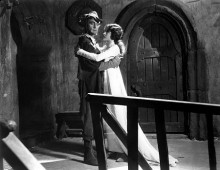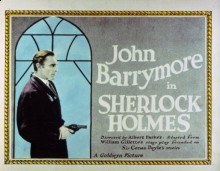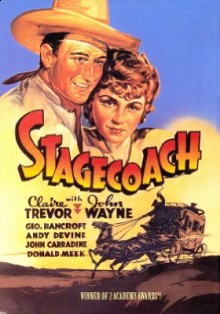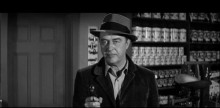In theaters
The massive onslaught of Big Summer Movies takes a short break while they gear up for the biggest (or maybe second biggest) next big thing, Harry Potter and the Half-Blood Prince. This week is relatively quiet in terms of mainstream releases, bringing us only the new Sacha Baron Cohen attack on the sensibilities, Brüno, and the low-wattage teen comedy I Love You, Beth Cooper. Now, I’ve seen neither and they both might be truly worthwhile. Plus, I confess that I’d see Brüno even if I wasn’t reviewing it just to see how out of hand it gets—or doesn’t.

However, maybe this would be a good week to take a break from the studio steamroller and spend some time with the surprising array of movies of, let’s say, slightly more depth that are in local theaters just now. Two new titles—Stephen Frears’ Chéri and Duncan Jones’ Moon—open this Friday at the Carolina Asheville and the Fine Arts respectively. Both are well worth a look (reviews appear in this week’s Xpress)—and quite a few of you have expressed interest in Moon, so get out there and support it to help ensure that we continue to get such fare.

The new Woody Allen comedy Whatever Works (also reviewed in this week’s paper) that opened Friday at the Fine Arts is still in town. This may well be the funniest film Allen has made in years and should not be missed by anyone who admires Allen’s work. Those with an interest in Broadway musicals (I admit that, with a few exceptions, my interest in such ends with Cole Porter) might want to hurry to the Fine Arts and catch Every Little Step, a documentary about A Chorus Line, which closes on Thursday night to make way for Moon.

Both Rian Johnson’s The Brothers Bloom and Stephan Elliott’s Easy Virtue are still holding on at the Carolina Asheville, though both have had the number of shows per day cut, which usually indicates films are on their way out. I’m a little surprised to see Brothers Bloom going to a curtailed set of shows, because its local take is about three times the national average, but I long ago gave up trying to understand the logic in matters of programming. Both are among the best films of the summer. And both are movies that will lose something if you wait for the DVD.
Next week you can slide back into the mainstream with Harry Potter and the Half-Blood Prince. This week try something a little different.
Noteworthy DVD releases

The mainstream offerings here are not very exciting either. Knowing is a nice-looking film with some strong moments that goes off the tracks long before the ending sends it straight to hell. And then there’s The Unborn, a fairly silly PG-13 horror picture that might be improved by being presented in an “uncut” version, but probably isn’t going to become any less silly. Also hitting the stores is Push. I’m not sure you need to know anymore than that it’s called Push.
More interesting—at least for those who care about vintage film—is Kino’s box set of John Barrymore silents. The set consists of Dr. Jekyll and Mr. Hyde (1920), Sherlock Holmes (1922), The Beloved Rogue (1927) and Tempest (1928). The gem of the set is The Beloved Rogue, which is probably Barrymore’s best silent film. However, all are of interest—even the rather lackluster Sherlock Holmes, which might serve as an interesting counterpoint to this Christmas’ Guy Ritchie take on the Holmes character.

Also out this week are Henry Hathway’s The Trail of the Lonesome Pine (1936) with Henry Fonda, Fred MacMurray and Sylvia Sidney; Arthur Lubin’s Ali Baba and the Forty Thieves (1943) with Jon Hall and Maria Montez; and William A. Wellman’s Beau Geste (1939) with Gary Cooper, Ray Milland and Robert Preston. Lonesome Pine is a backwoods melodrama that’s mostly famous for being the first Technicolor film to be shot on location, but it’s not a bad movie in its own right. Ali Baba is noteworthy simply for being one of those Technicolored campy Jon Hall-Maria Montez pictures that Universal kept churning out in the 1940s. As a film, the best of the lot is Beau Geste, but it should be noted that the film has been available for some time as part of a Gary Cooper collection.
Notable TV screenings

Fox Movie Channel has apparently outdone themselves—there’s no schedule on their Web site. Perhaps they’re merely showing Dunstan Checks In on a continuous loop and want to keep it quiet. Turner Classic Movies, on the other hand, seems determined to keep the idea alive that 1939 was the greatest year the movies ever had. It’s not an idea I agree with (I can come up with better years), but it’s so entrenched in the American conscious—thanks mostly to Gone with the Wind and The Wizard of Oz—that I know it’s useless to bother fighting it.
This Thursday evening they don’t make a terribly persuasive case for the year with Cecil B. DeMille’s Union Pacific, Michael Curtiz’s Dodge City, John Ford’s Stagecoach, Lloyd Bacon’s The Oklahome Kid, and the very peculiar inclusion of Charles Vidor’s B picture, Blind Alley. Union Pacific is enjoyable DeMille kitsch. Dodge City is Errol Flynn’s best western—for what that’s worth. The Oklahoma Kid offers us James Cagney and Humphrey Bogart as cowboys, which kind of says it all. Blind Alley is an OK gangster picture with the underrated Chester Morris. The only movie that qualifies for greatness in the set is Stagecoach—and if I had to pick a John Ford film from 1939, I’d go with Drums Along the Mohawk. Still, if you’re interested, this mini wild-west-athon starts at 8 p.m. on Thursday, July 9, on TCM.
Panic in Year Zero! 10 a.m., Saturday, July 11, TCM

Ray Milland stars in this 1962 cheapie which he also directed. It’s not a particularly good movie, but it’s a fascinating glimpse into the mind-set of its era. The story centers around a “typical American family” who happen to be off on vacation in the mountains when nuclear war strikes. The bulk of the film—marred by a Les Baxter musical score (that man did more damage to movies than anyone in the 1960s)—is an examination of the descent of civilization into survivalist barbarism. It’s not bad, but it’s a bit on the exploitative simple-minded side. The true shocker—from a modern perspective—is the daughter’s line about the atomic bomb and her belief that it was supposed to just wipe out everything “when it happened.” It’s the phrasing—when it happens, not if—that serves as a chilling reminder of just where our heads were in 1962.
Bullets or Ballots 8 p.m., Monday, July 13, TCM
Edward G. Robinson, Joan Blondell and Humphrey Bogart star in William Keighley’s Bullets or Ballots (1936), one of the better post-code (read: more heavily censored) gangster flicks. As with most post-code gangster tales, this one focuses more on the side of law and order (Eddie G.) and less on the glamour of the gangster lifestyle. It’s hardly a great picture, but it’s 82 minutes of fun entertainment with a nice little shoot-out between Robinson and Bogie.




Before you comment
The comments section is here to provide a platform for civil dialogue on the issues we face together as a local community. Xpress is committed to offering this platform for all voices, but when the tone of the discussion gets nasty or strays off topic, we believe many people choose not to participate. Xpress editors are determined to moderate comments to ensure a constructive interchange is maintained. All comments judged not to be in keeping with the spirit of civil discourse will be removed and repeat violators will be banned. See here for our terms of service. Thank you for being part of this effort to promote respectful discussion.